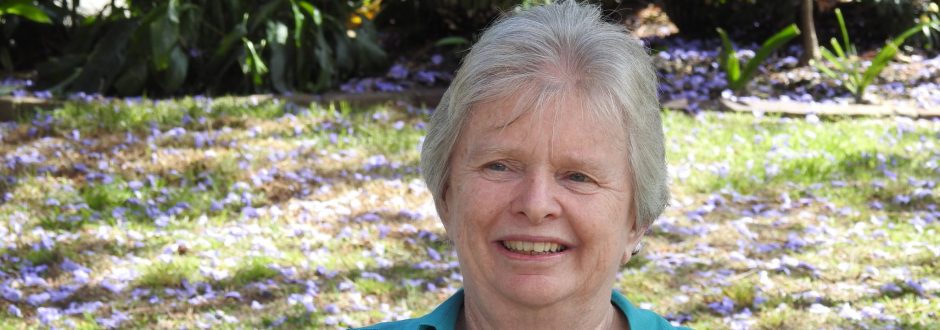We need to come from a more humble stance of listening and responding rather than ruling and domineering, writes Good Samaritan Sister Clare Condon.
BY Clare Condon SGS
Experience often teaches more lasting lessons than all the classrooms one can attend. Recently I have had two lasting experiences that have challenged my own mindset and provoked a re-examination of why I, or others for that matter, would think and act in any particular manner.
The first such experience was a two-day meeting in Alice Springs with leaders of religious orders who have members ministering in Central Australia, the local Bishop Eugene Hurley and representatives of the Indigenous communities of Central Australia.
The second experience was a four-day visit to Railaco in Timor Leste to meet with Good Samaritan Sister, Rita Hayes, and the many Timorese with whom she ministers alongside the Jesuit community in Railaco. Two such brief experiences do not make me an expert in any sense of the word, but the following are my reflections from such experiences.
Part of the listening to these two diverse communities was a brief history of their experiences. The word that has emerged in my mind has been colonisation: for Australia’s Indigenous people 213 years; and for the people of Timor Leste, 480 years, first by Portugal and then by Indonesia. The East Timorese have experienced just 10 years of independence.
Why should the word “colonisation” be so strong for me?
Firstly, because the effects of it are so devastating and long-term in the psyche of a people; on their self identity, their self confidence and their self respect. And secondly, the effects of colonisation continue in more subtle forms of domination in both Australia and Timor Leste.
Some of the current forms come in the guise of ‘intervention’ in Australia and growing commercial colonisation in Timor. It all comes back to who is making the decisions and on what basis these decisions are being made.
The ‘intervention’ came about because a Federal Minister named a perceived crisis. There has been no serious attempt to analyse the underlying causes of the crisis that has led to serious alcohol abuse and all the resulting problems in Central Australia. Such robust analysis can only happen from a deep and profound listening and consultation with the people affected by the crisis.
Timor’s need for capital and investment, after being stripped of its resources, can be manipulated by the powers of the world. The treaty for liquefied gas development in the Timor Sea is one such example. Where is the equal playing field? What is the so-called national interest of Australia? Or is it capital greed or fear of a more powerful neighbour, for example, Indonesia?
In our meeting in Alice Springs two words were put to us. Firstly, have a healthy sense of DOUBT. Doubt anyone who thinks she or he has a ready-made solution to a complex reality.
Secondly, LISTEN. Listen to those who have been ‘done unto’ or colonised; hear their expectations and aspirations, and then support them in order to find their own solutions and realities.
It seems to me that neither of these two concepts is paramount in the Australian political arena at this time. ‘Intervention one’ has not worked according to the Indigenous people to whom we listened. What makes our politicians think that ‘intervention two’ would?
Perhaps there is a real need for a change in mindset. Perhaps the real issue is a white man’s issue of greed for spreading ‘grog’ liberally to a defeated, dejected and depressed people resulting from a dominance of over 200 years. Perhaps we need to come from a more humble stance of listening and responding rather than ruling and domineering.
I am reminded of a mindset expressed by Archbishop Polding in his appearance before a NSW Parliamentary Committee back on September 10, 1845, which I think is still relevant today:
“I conceive that there is established in the minds of the black population a sentiment that the whites are essentially unjust; there may be exceptions as they find individuals who are good and kind to them, but I apprehend that that is a leading idea, founded on the fact of the whites coming to take possession of their lands, without giving them what they deemed an equivalent; of course they argue, not according to our views, but according to their own;… the Aborigines will demand, ‘What right have you to come here? We have not asked you to come, and you take away our lands, you drive away our means of subsistence’, ‘We do not of course feel as they feel, nor argue as they argue, they have instinctive justice, we argumentative’.”
Perhaps, we ‘whitefellas’ need a change of mindset with a healthy sense of doubt coupled with a listening heart which places the well-being of others before all else.
